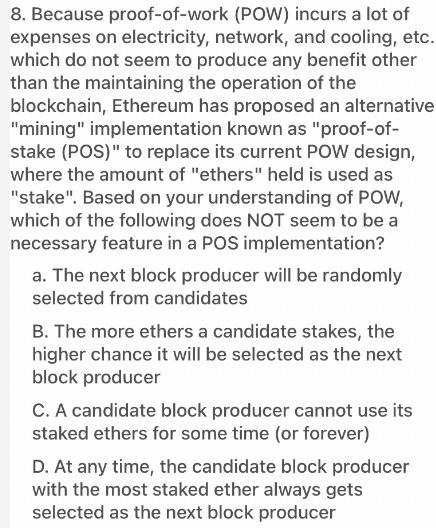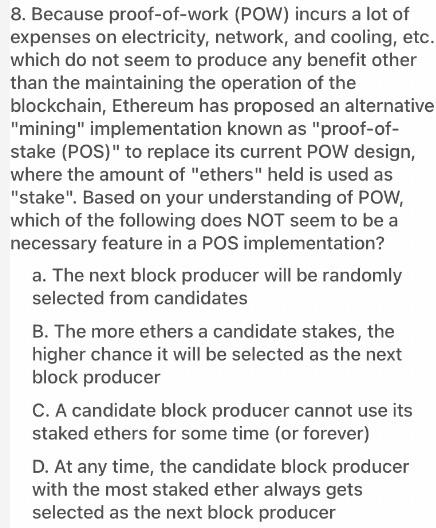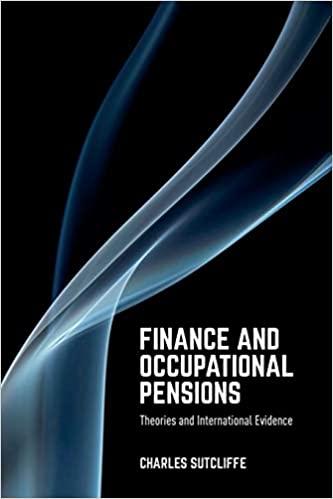help me! with this question
roof of work out of proceed and which the then the operation of the blocchetthereum has proposed nema proof what the concertanding of Pow. Which of the following does NOT betaryera The word wil brandende man The chwile the Accueca dhe former Men back price with the whole Who keeps record of the ledger for Bitcoin transactions? Satoshi Nakamoto A group of core developers The central bank miners For any blockchain what data is always recorded within each block? The previous block s hash The current blocks hash The next blooks hashi All previous blocks hashes 8. Because proof-of-work (POW) incurs a lot of expenses on electricity, network, and cooling, etc. which do not seem to produce any benefit other than the maintaining the operation of the blockchain, Ethereum has proposed an alternative "mining" implementation known as "proof-of- stake (POS)" to replace its current POW design, where the amount of "ethers" held is used as "stake". Based on your understanding of POW, which of the following does NOT seem to be a necessary feature in a POS implementation? a. The next block producer will be randomly selected from candidates B. The more ethers a candidate stakes, the higher chance it will be selected as the next block producer C. A candidate block producer cannot use its staked ethers for some time (or forever) D. At any time, the candidate block producer with the most staked ether always gets selected as the next block producer 8. Because proof-of-work (POW) incurs a lot of expenses on electricity, network, and cooling, etc. which do not seem to produce any benefit other than the maintaining the operation of the blockchain, Ethereum has proposed an alternative "mining" implementation known as "proof-of- stake (POS)" to replace its current POW design, where the amount of "ethers" held is used as "stake". Based on your understanding of POW, which of the following does NOT seem to be a necessary feature in a POS implementation? a. The next block producer will be randomly selected from candidates B. The more ethers a candidate stakes, the higher chance it will be selected as the next block producer C. A candidate block producer cannot use its staked ethers for some time (or forever) D. At any time, the candidate block producer with the most staked ether always gets selected as the next block producer














